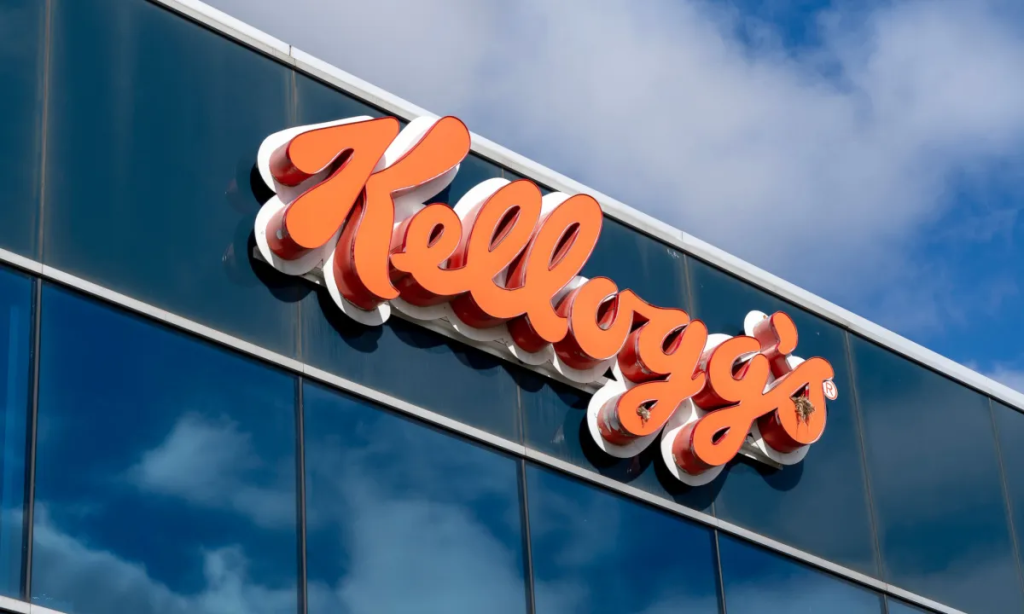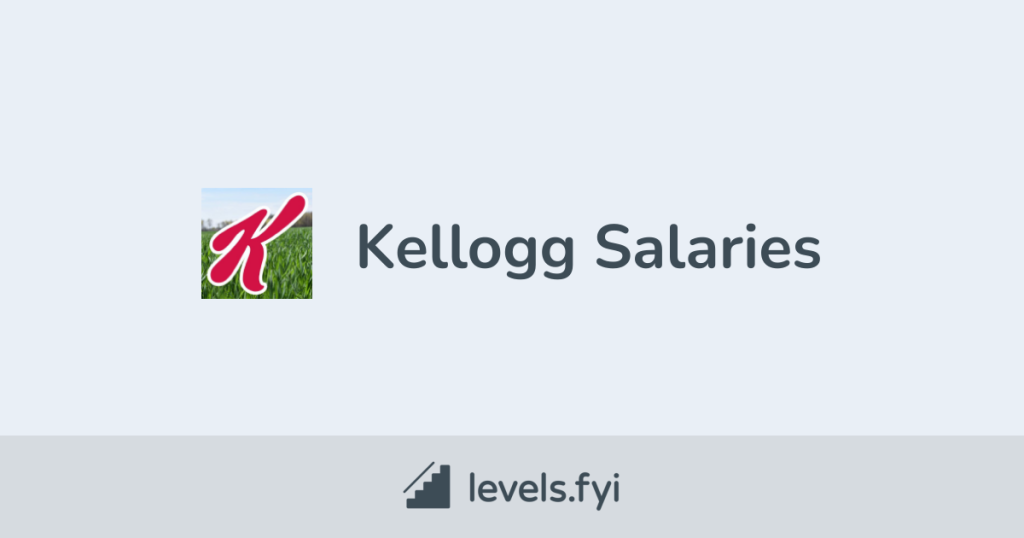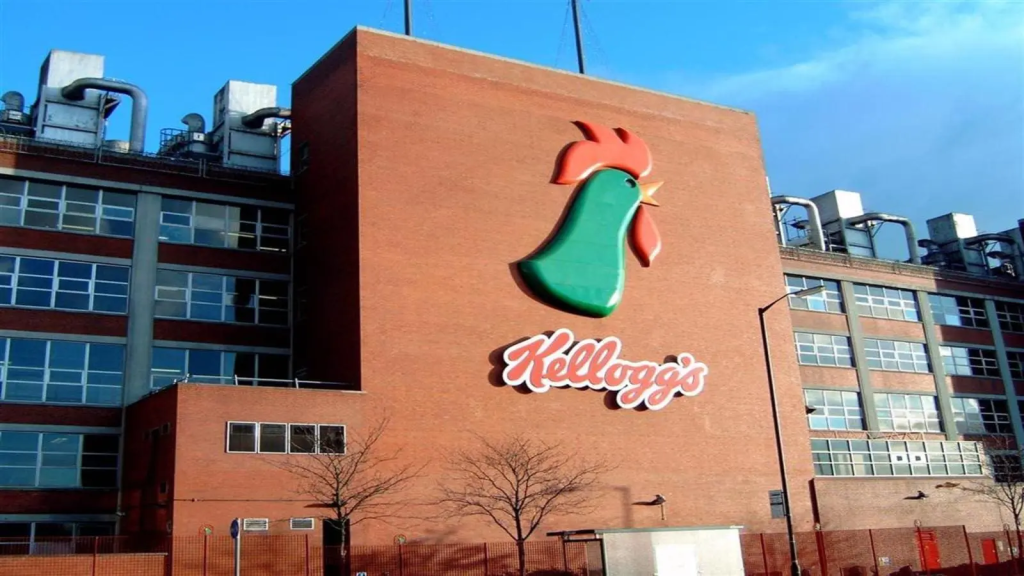
Kellogg’s, formally known as the Kellogg Company, is a global food manufacturing giant best known for its iconic breakfast cereals. Here’s a quick introduction:
- Cereal Powerhouse: From Frosted Flakes to Corn Flakes, Kellogg’s offers a vast array of ready-to-eat cereals enjoyed by families worldwide.
- Beyond Breakfast: They’ve expanded their product portfolio to include convenient snacks like Pringles, Cheez-It, and Eggo waffles.
- Global Reach: Kellogg’s products are manufactured and marketed in over 180 countries, offering diverse career opportunities.
What are the selection and Interview process of Kellogg?
The selection process at Kellogg’s can vary depending on the specific role, location, and level of experience. Here’s a roadmap for what you might encounter:
1. Application: Submit your resume and cover letter through Kellogg’s careers website.
2. Screening and Review: Recruiters will assess applications to identify candidates with the qualifications and experience outlined in the job description. They’ll focus on skills relevant to the food industry and the specific role (e.g., marketing for marketing roles, engineering for technical roles).
3. Interview Stages (may vary):
- Phone Interview: An initial phone conversation with an HR representative or hiring manager to discuss your background, motivations, and interest in the food industry, particularly Kellogg’s brand recognition and product portfolio.
- In-Person Interview(s): These interviews may involve one or more rounds with hiring managers from relevant departments (e.g., marketing, sales, operations) and potentially senior leadership depending on the role. Here’s what you might encounter based on the role:
- Marketing Roles: Be prepared for discussions about your marketing experience, understanding of consumer trends, and ability to develop creative marketing campaigns for Kellogg’s products. You might encounter case studies or marketing presentations depending on the role.
- Sales Roles: Expect discussions about your sales experience, ability to build relationships with clients (e.g., retailers), and understanding of the food industry sales landscape. You might encounter role-playing exercises to assess your sales skills and objection handling techniques.
- Engineering Roles: Be prepared for in-depth discussions about your engineering background, relevant technical skills (e.g., food science or chemical engineering for some roles), and problem-solving abilities. You might encounter technical drawings, case studies, or specific engineering challenges related to food production.
- General Interview Questions: Behavioral interview questions using the STAR method (Situation, Task, Action, Result) will be used to assess your relevant skills and experiences across various roles.
4. Additional Assessments (for some roles): Some positions may involve online assessments to evaluate basic math skills (crucial in many Kellogg’s roles) or a short personality assessment to gauge your cultural fit within the company.
5. Offer and Background Check: Successful candidates will receive a job offer contingent on a background check.
Tips for Success:
- Research Kellogg’s thoroughly, understanding their history, iconic cereal brands, and expansion into convenient food categories.
- Tailor your resume and cover letter to highlight relevant skills and experiences that demonstrate a strong fit for the specific role you’re applying to.
- Be prepared for discussions about the food industry or relevant technical skills (for engineering roles) and your passion for Kellogg’s products and mission (a plus).
- Practice your behavioral interview skills using the STAR method.
- Project a positive attitude, strong work ethic, and a willingness to learn (valuable in all roles!), excellent communication and interpersonal skills, and an eagerness to contribute to a company that brings breakfast (and beyond) to the world.
By understanding Kellogg’s selection process and showcasing your relevant qualifications and enthusiasm for their products, you can increase your chances of landing an interview and a rewarding career at this leading food manufacturer.
How many rounds of interview conducted in Kellogg?
Kellogg School of Management typically conducts one interview for their MBA program [1, 2]. This is different from the interview process for many other business schools, where multiple rounds might be standard. However, Kellogg has a unique two-part interview process:
- Video Essay: Before the live interview, you’ll record video responses to a series of questions [1, 2]. This allows the admissions committee to assess your communication skills and thought process in a recorded format.
Live Interview:
- One Round: This is the core of the Kellogg interview, where you’ll meet with a Kellogg alumnus or admissions staff member [2]. The interview typically lasts 30-45 minutes [2].
Here’s a breakdown of the interview stages at Kellogg:
- Application: Submit your application materials, including your video essay and other required documents [1, 2].
- Video Interview: Complete a series of pre-recorded video responses to questions about your background, goals, and fit with Kellogg [1, 2].
- Live Interview (One Round): Meet with a Kellogg alumnus or staff member for a live discussion about your application and candidacy [2].
What is the salary for freshers in Kellogg?

The salary information you might be looking for is likely related to job placement after graduating from the Kellogg MBA program. Since Kellogg is a graduate program, the concept of “freshers” doesn’t directly apply.
Here’s what you can expect regarding Kellogg MBA graduate salaries:
- Post-MBA Salaries: Kellogg graduates tend to secure well-paying positions after graduation [3]. You can find salary reports on their website or explore resources like the Employment Report [3].
Tips for the Kellogg Interview:
- Prepare for Video Essay: Practice your responses beforehand and ensure you have a strong internet connection and quiet environment for recording.
- Research Kellogg: Understand Kellogg’s unique culture, focus on leadership, and global perspective [2].
- Practice for Live Interview: Prepare for common MBA interview questions and tailor your responses to Kellogg’s program and values.
- Highlight Your Strengths and Goals: Showcase your achievements, leadership potential, and how Kellogg can help you achieve your career aspirations.
By understanding Kellogg’s unique interview process and focusing on your strengths and goals, you can increase your chances of success in securing an interview and potentially gaining admission to the program.
Top questions Asked for freshers in Kellogg
While there likely isn’t a one-size-fits-all list revealing the exact top questions asked to freshers at Kellogg, here’s a breakdown of what you might encounter during an interview for freshers, along with tips for finding more specific information:
General Interview Questions for Freshers:
- Tell me about yourself and your career goals. (This is a common opening to allow you to showcase your background and aspirations)
- Why are you interested in Kellogg Company and the food industry? (Research the company and their popular brands to demonstrate interest)
- What are your strengths and weaknesses? (Be honest but focus on framing weaknesses as areas for development)
- Describe a time you worked effectively in a team. (Highlight your teamwork and communication skills)
- Do you have any questions for us? (Prepare insightful questions to show your interest and initiative)
Possible Role-Specific Questions (Depending on the Position):
- Sales & Marketing Roles: Be prepared for questions about your communication skills, ability to build relationships with clients, and understanding of marketing principles (if applicable). You might also encounter situational questions about selling Kellogg’s products.
- Operations/Production Roles: These roles might involve questions about your attention to detail, ability to follow procedures, and willingness to work in a fast-paced production environment.
- Supply Chain/Logistics Roles: For these roles, anticipate questions about your analytical skills, problem-solving abilities, and understanding of logistics principles (if applicable).
Tips for Finding More Specific Questions:
- Kellogg’s Careers Website: Explore the careers section of Kellogg’s website, particularly under “FAQs” or “Interview Tips.” They might have resources for new hires.
- Kellogg Interview Reviews: Look for interview reviews on websites like Glassdoor to get insights from past interviewees, keeping in mind that experiences may vary.
- Informational Interviews: Consider reaching out to Kellogg employees on LinkedIn for informational interviews (brief conversations to learn more about the company and specific roles).
How to apply for job in Kellogg?

1. Search for Open Positions:
- Head to Kellogg Company’s careers website: Kellogg Company’s careers page.
2. Target Your Search:
- Utilize filters to find “Entry Level” or “Associate” positions that align with your skills and interests. You can also filter by Location, Department (e.g., Sales, Marketing, Operations, Supply Chain), or Keyword.
3. Apply Online:
- Once you discover a relevant opportunity, click “Apply Now” and follow the instructions. You’ll likely need to submit:
- Resume: Tailor your resume to highlight relevant skills and achievements from academics, projects, or internships (if applicable). Focus on skills like communication, teamwork, problem-solving, and a willingness to learn. Quantify your achievements whenever possible.
- Cover Letter (Optional, but Recommended): Craft a compelling cover letter that showcases your genuine interest in Kellogg and the specific role. Tailor it to the position and highlight why you’re a strong fit. Mention your interest in specific Kellogg’s brands or the food industry in general.
4. Tips:
- Highlight Transferable Skills: Even without direct experience in the food industry, focus on transferable skills like communication, problem-solving, and a willingness to learn.
- Research Kellogg’s Culture: Kellogg emphasizes innovation and social responsibility. Research their company culture and values to see if they align with yours.
- Be Passionate About Food (if applicable): While not always required, expressing enthusiasm for food can be a plus for certain roles at Kellogg’s.
- Mutual of Omaha: Selection and Interview process, Questions/Answers - April 15, 2024
- AES: Selection and Interview process, Questions/Answers - April 15, 2024
- Amphenol: Selection and Interview process, Questions/Answers - April 15, 2024

